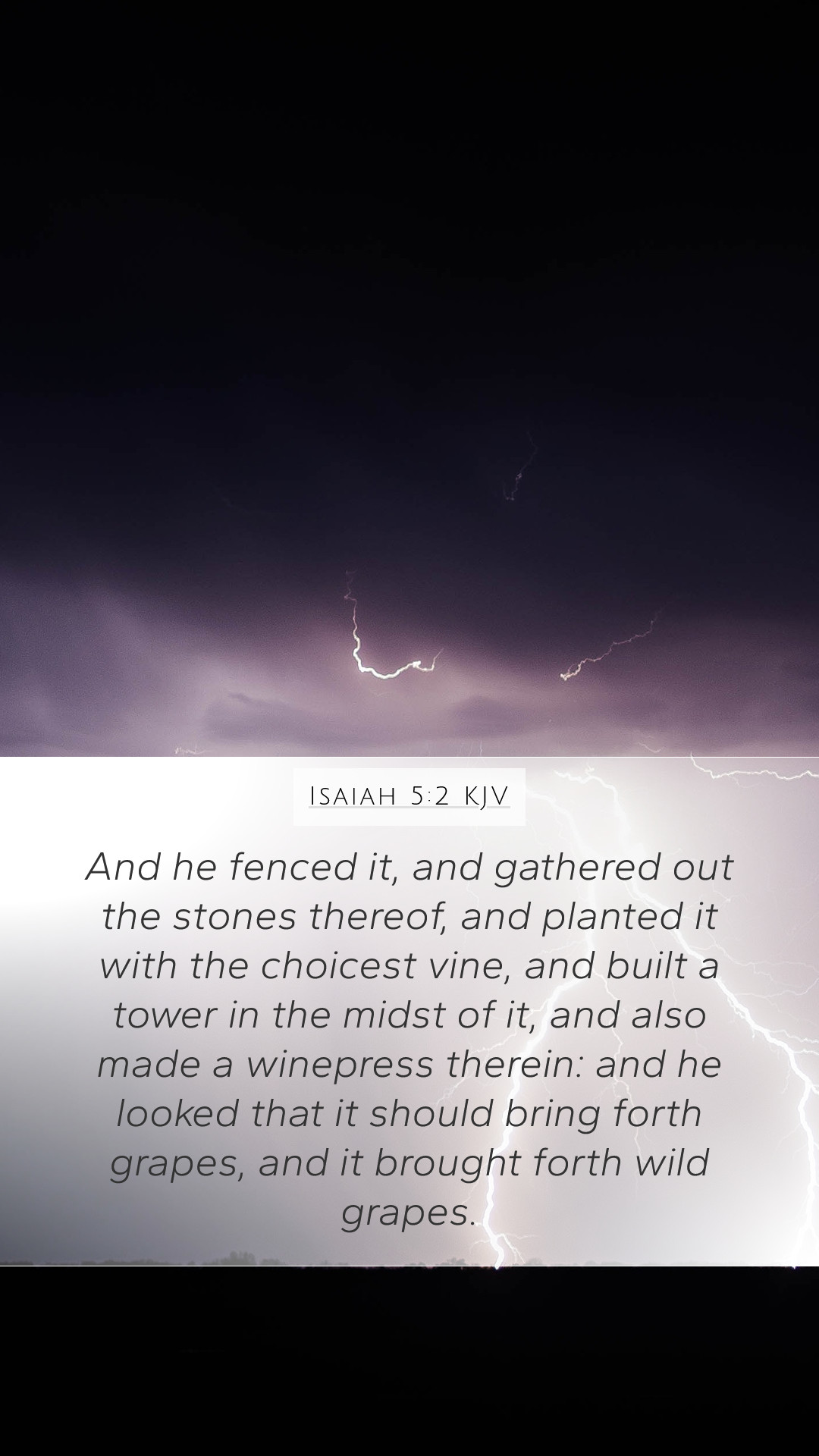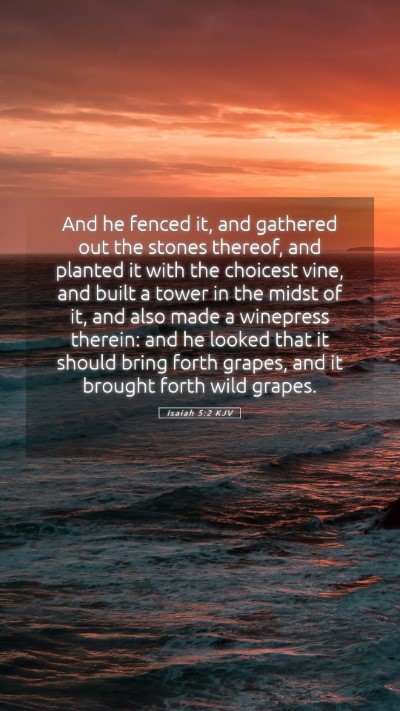Understanding Isaiah 5:2 - A Comprehensive Commentary
Isaiah 5:2 reads:
"And he fenced it, and gathered out the stones thereof, and planted it with the choicest vine, and built a tower in the midst of it, and also made a winepress therein: and he looked that it should bring forth grapes, and it brought forth wild grapes."
Overview of Isaiah 5:2
Isaiah 5:2 is a part of the "Song of the Vineyard," where the prophet Isaiah uses agricultural imagery to express God's care and expectations for Israel, depicted as a vineyard. This verse highlights the efforts God has made for His people and contrasts those efforts against their unfaithfulness.
Commentary Insights
Matthew Henry's Commentary
Matthew Henry emphasizes the meticulous care taken by God in tending to His vineyard, which represents the house of Israel. The "fencing" represents divine protection, the "gathering out of stones" symbolizes the removal of obstacles, and the choice of the "choicest vine" illustrates God's selection of Israel to bear fruit. However, the expectation of good grapes versus the wild grapes signifies the disappointment of God due to Israel's unfaithfulness and rebellion.
Albert Barnes' Notes
Albert Barnes points out that the "tower" signifies a place of watchfulness, showing God’s vigilance over His people. The "winepress" indicates a place for producing joy, which relates to the blessings God intended for Israel. Barnes notes that the wild grapes exemplify the corruption and sin that have replaced the expected righteousness and fruitfulness of God's people. This addresses the serious consequences of Israel’s moral failings.
Adam Clarke's Commentary
Adam Clarke elaborates on the symbolism within the verse. He suggests that the vineyard imagery not only illustrates God's providential care but also serves as an allegory for spiritual instruction. The gathering out of stones can be seen as the purging of sins, while the selection of a choice vine symbolizes the covenant relationship with God. Clarke emphasizes that despite God's multifaceted efforts to nurture His people, their failure to respond aptly led to judgment.
Key Themes and Symbolism
- Divine Care: God's investment in Israel showcases His love and effort, making their failure more grievous.
- Expectations vs. Reality: The good grapes represent righteousness, while the wild grapes symbolize sin and disobedience.
- Judgment: This verse foreshadows the impending judgment on Israel for their transgressions.
- Symbolism: The vineyard is a classic metaphor in Scripture representing God's people, indicating how they are to produce fruits of righteousness.
Application in Today's Context
Reflecting on Isaiah 5:2 invites us to examine our own lives in relation to God's expectations. Just as the vineyard was expected to bear fruit, we too are called to live lives worthy of the calling. This can be explored in various Bible study topics, such as:
- How to interpret Bible verses and apply them in daily life.
- In-depth Bible verse analysis focusing on Old Testament prophecies.
- Understanding difficult Bible passages related to God's expectations.
Cross References
- Psalm 80:8-16 - A similar theme regarding God's vineyard.
- Matthew 21:33-41 - The parable of the wicked husbandmen, paralleling the message of Isaiah 5.
- John 15:1-2 - Jesus as the true vine, stressing the importance of bearing fruit.
Conclusion
Isaiah 5:2 serves as a poignant reminder of the care and expectations God has for His people. Through this profound scripture analysis, we can glean insights into God's nature, expectations for righteous living, and the consequences of turning away from Him. Understanding this verse within its historical context enriches our Bible study lessons and propels us towards a more fruitful relationship with God.


